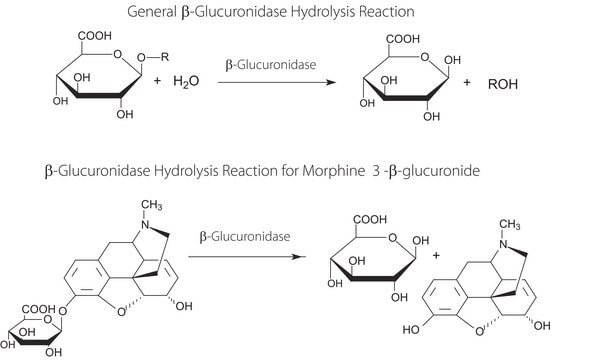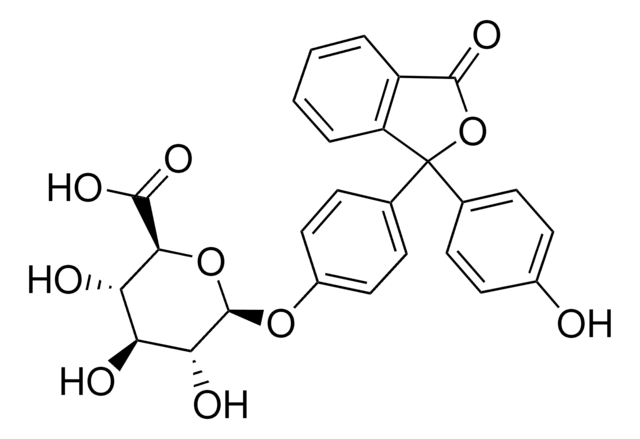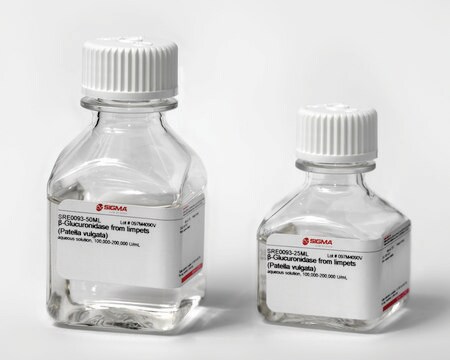G8420
β-Glucuronidase from Escherichia coli
≥20,000 units/mg protein, recombinant, expressed in E. coli overproducing strain, lyophilized powder
Synonym(s):
β-D-Glucuronide glucuronosohydrolase
About This Item
Recommended Products
recombinant
expressed in E. coli overproducing strain
Quality Level
form
lyophilized powder
specific activity
≥20,000 units/mg protein
mol wt
290 kDa
composition
, ~25%
storage temp.
−20°C
Looking for similar products? Visit Product Comparison Guide
Application
Learn more
about recent application data generated by Sigma R&D to optimize hydrolysis for different drug classes using enzymes from different sources and the use of a chromatographicaly purified enzyme to reduce the effect of esterase activity resulting in conversion of 6-MAM to Morphine
Quality
Unit Definition
Signal Word
Danger
Hazard Statements
Precautionary Statements
Hazard Classifications
Resp. Sens. 1 - Skin Sens. 1
Storage Class Code
11 - Combustible Solids
WGK
WGK 3
Flash Point(F)
Not applicable
Flash Point(C)
Not applicable
Personal Protective Equipment
Choose from one of the most recent versions:
Certificates of Analysis (COA)
Don't see the Right Version?
If you require a particular version, you can look up a specific certificate by the Lot or Batch number.
Already Own This Product?
Find documentation for the products that you have recently purchased in the Document Library.
Customers Also Viewed
Articles
β-glucuronidase (GUS) enzymes are utilized to hydrolyze glucuronide (gluc) drug metabolites to the parent drug, facilitating analysis by LC-MS/MS.
Probiotics exhibit an inhibitory effect on pathogens, help prevent chronic intestinal inflammatory diseases or atopic syndromes, and support the immune system.
Protocols
Objective: To standardize a procedure for the enzymatic assay of β-Glucuronidase.
Our team of scientists has experience in all areas of research including Life Science, Material Science, Chemical Synthesis, Chromatography, Analytical and many others.
Contact Technical Service




